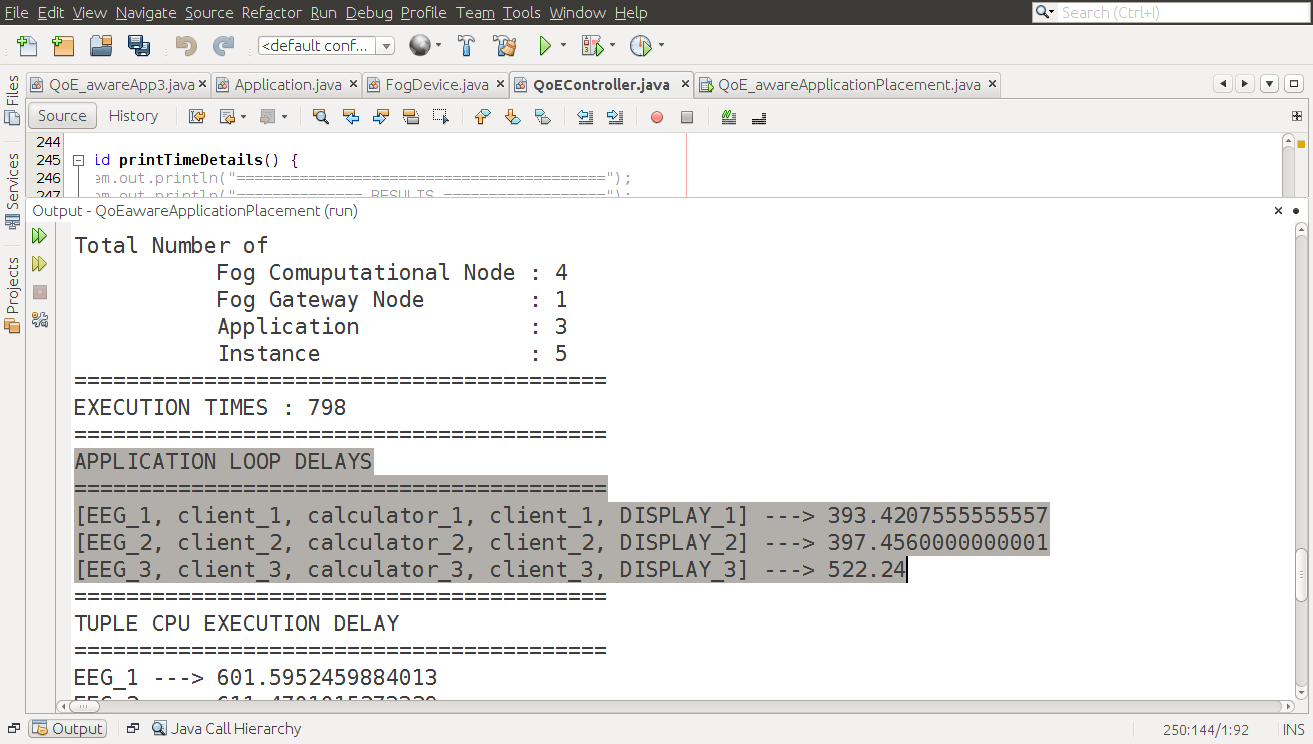Amazing technological breakthrough possible @S-Logix
pro@slogix.in
The total delay during the execution of the workflow application from the time of its request in the fog or cloud environment.
for (Integer loopId :
TimeKeeper.getInstance().getLoopIdToTupleIds().keySet()) {
System.out.println(getStringForLoopId(loopId) + " ---> " + TimeKeeper.getInstance().getLoopIdToCurrentAverage().get(loopId));
if(TimeKeeper.getInstance().getLoopIdToCurrentAverage().get(loopId ) != null) {
apploopLatency += TimeKeeper.getInstance().getLoopIdToCurrentAverage().get(loopId);
}
}
